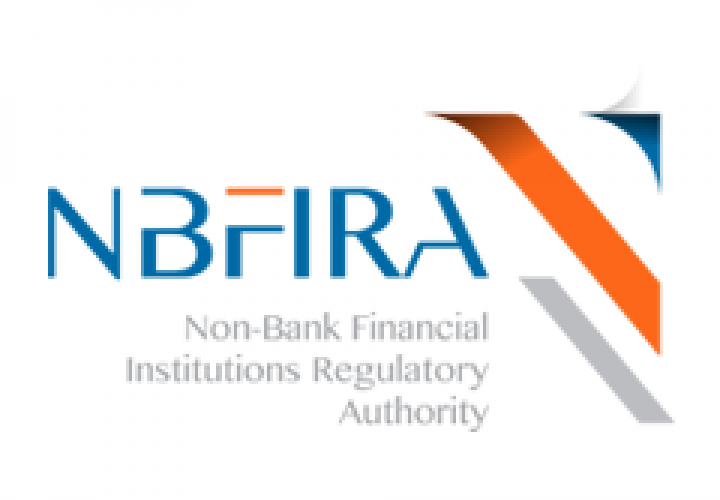FAQs-Regulation & Supervision of Virtual Assets
1. Who is required to apply for licensing?
- Virtual Assets Service Provider
- Initial Token Issuer
2. Who is a Virtual Asset Service Provider (VASP)?
- A Virtual Asset Service Provider means a person who undertakes a virtual asset service on behalf of another person under an agreement, as part of a business.
3. What is an Initial Token Offering?
- An Initial Token Offering means an offer that is made to the public, by an issuer, for the sale of a virtual token in exchange for fiat currency (e.g. Botswana Pula, US Dollar) or another virtual asset.
4. What are the requirements for a Virtual Asset Service Provider or An Issuer of Initial Token Offering to be licensed with NBFIRA?
Licensing Requirements include:
- Company Requirements;
- Controller Requirements;
- Financial Intelligence Act Requirements;
- Personnel Requirements;
- Other Requirements;
- Application fee.
Click on the links below to access licensing requirements;
Download Virtual Assets Regulations
Download Licensing Requirements
6. What if I was a Virtual Asset Service Provider prior to the commencement of the Virtual assets Act and Regulations? Do I still need to apply for a license?
- If you were already operating a Virtual Asset Business before the commencement of the Virtual Assets Act and you did not apply for a license before 31st May 2022 you are operating illegally and must cease operations and apply for a license with the Authority.
7. Why was there a need to regulate Virtual Assets in Botswana?
- Financial Action Task Force (FATF) Requirement: Due to the decentralised nature (meaning they do not operate through regulated and supervised intermediaries) of virtual assets, they are perceived to present a threat of money laundering and possible tax evasion, hence standard setting bodies such as FATF recommended that they be monitored.
- Stability of Local Financial System: The Authority’s mandate is to safeguard and contribute to the stability of the local financial system, and in so doing, build and sustain the confidence of local and international stakeholders in the integrity of the industries within the local Non-Bank Financial Institutions (NBFI) sector.
- Consumer Protection: The Authority also regulates and supervises the NBFI sector in order to protect consumers from being exposed to undue risks presented by the Virtual Assets business.
8. What are some of the key risks associated with Virtual Assets?
- Financial Reporting: Cross boarder transaction aren’t monitored for reporting as is done in the traditional financial ecosystem.
- Anonymity: Launders like to operate where they believe there is a less chance of being detected.
9. How can the public keep themselves well informed to make sound decisions when participating in virtual assets businesses?
- The public is advised to contact the Authority for further information on visual assets. More information will be shared on the Authority’s website and social media pages.
10. What are the benefits of being registered with NBFIRA’s database for Batswana involved/interested in Virtual Asset or such kind of services?
- The benefits of being a registered/licensed Virtual Assets Service Provider is that their business will be operating legally, adhering to industry laws and will have the credibility and integrity of a regulated entity. This is important for an entity’s customers, brand management and stakeholders, including shareholders and clients.
11. How does NBFIRA regulate or register traders based outside Botswana, when Batswana engage them for their services?
- Section 3(b) of the Virtual Assets Act states that the Act applies to “any person carrying on a virtual asset business irrespective of the physical location from which the activity is carried out”.
- NBFIRA’s strong collaboration with regulators of VASPs in different countries will be important, especially in instances where such platforms or operators are also licensed in other countries. The Authority will, therefore, work closely with its regulatory peers in matters involving operators based outside the country.







